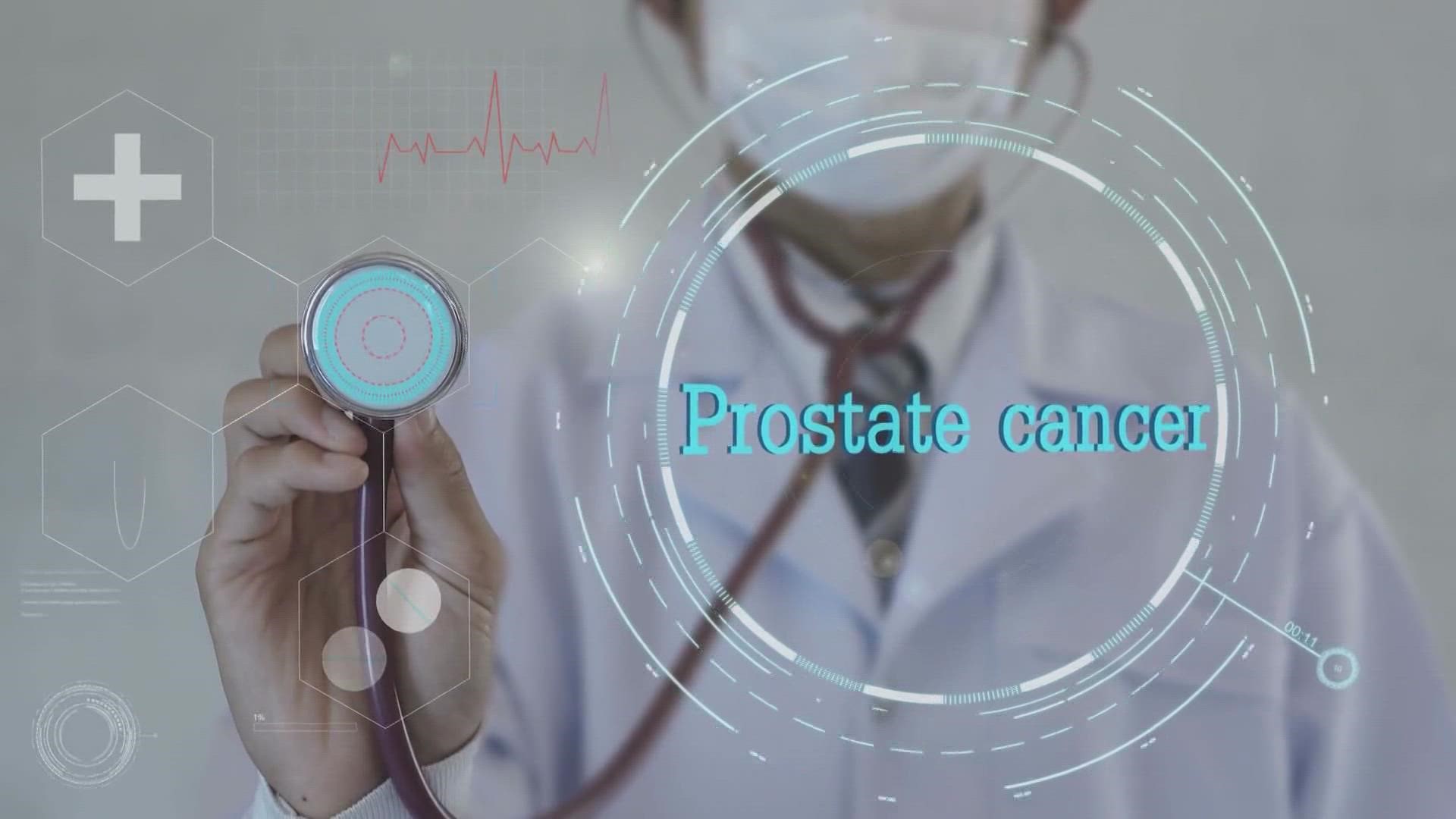SAN ANTONIO — One in six men will develop prostate cancer in their lifetime.
Prostate cancer develops in the glands of the prostate in men and is quite common as the hair grows gray and the prostate grows in size. But the good news is that prostate cancer has one of the highest survival rates of all cancers.
"It is most likely that the prostate cancer that is diagnosed most likely is an indolent, slowly growing cancer that most likely has no chance of spreading outside the prostate," said Dr. Ahmed Mansour who is a leading urologist with University Health and UT Health San Antonio. He added, "We don't know exactly what causes prostate cancer, but we do know that there are risks for developing prostate cancer."
Those at a higher risk for prostate cancer include men of older age, African American men who are 75 percent more likely to develop the disease and twice as likely to die from it, those with a high fat, high carb lifestyle, men who are obese, and those with a family history. Dr. Mansour told us, "If you have a first degree relative with prostate cancer, there is a high chance that you will develop prostate cancer.
In 2018 the United States Preventative Task Force said selective prostate screening should begin at 55 and continue through 69. The potential benefits and harms of screening should be discussed with a patient's clinician. For those age 70 and over, prostate cancer screening is not recommended.
However, for those at a higher risk such as African American men and those with a family history, screenings are often recommended between 40 and 45 years of age.
Dr. Mansour told us, "About 40 percent of prostate cancers are related to inherited genes. We have identified about 20 genes that run in families of patients with prostate cancer. Not only prostate cancer, but if you have a first degree relative with known genetic risk factor for breast and ovarian cancer like the BRCA1 and BRCA2 genes, you are also at higher risk of developing prostate cancer."
Dr. Mansour also explained the screening process and told us, "Prostate specific antigen PSA -- it's a protein which is produced by the prostate and it circulates in the blood. It can be detected by a simple blood test. It's very cheap. It costs about $3 and it can lead to early diagnosis of prostate cancer. Screening has led to a decrease in the deaths of prostate cancer by about a half. However, there are advantages and disadvantages of prostate cancer screening, and it is one of usually controversial topics in the scientific community. The advantages of prostate screening is obvious. Early diagnosis of the disease will lead to higher cure rates when treatment is done. If needed, however, the disadvantages are many men with high PSA do not have prostate cancer and will go through the procedures for diagnosis prostate cancer, which is namely the biopsy, which has also some side effects. Also, men will have a diagnosis of prostate cancer for a disease that will not affect them during their lifetime. And some men will actually get treated for a disease which should not be treated so that issues with prostate cancer, with prostate cancer screening, are mainly over-diagnosis and over-treatment of diseases which will not affect men during their lifetime."
Dr. Mansour stressed speaking with your doctor about available tests for prostate cancer. He said, "PSA is the most available test. However, it also has its downfalls, and with your doctor, there are other additional tools that can be used before deciding to go for the biopsy to decide whether you need a biopsy or not. These include imaging studies like a MRI or other biomarkers, which are either additional blood tests or urine tests that can help you and your doctor decide whether you need additional diagnosis for exclusion of prostate cancer, or evaluation of your higher PSA or not. It's a shared decision making process, which is very important, and you need to talk to your doctor and communicate with your doctor very effectively to decide what is best for you."
If you would like to see more of our Wear The Gown stories, click here.

